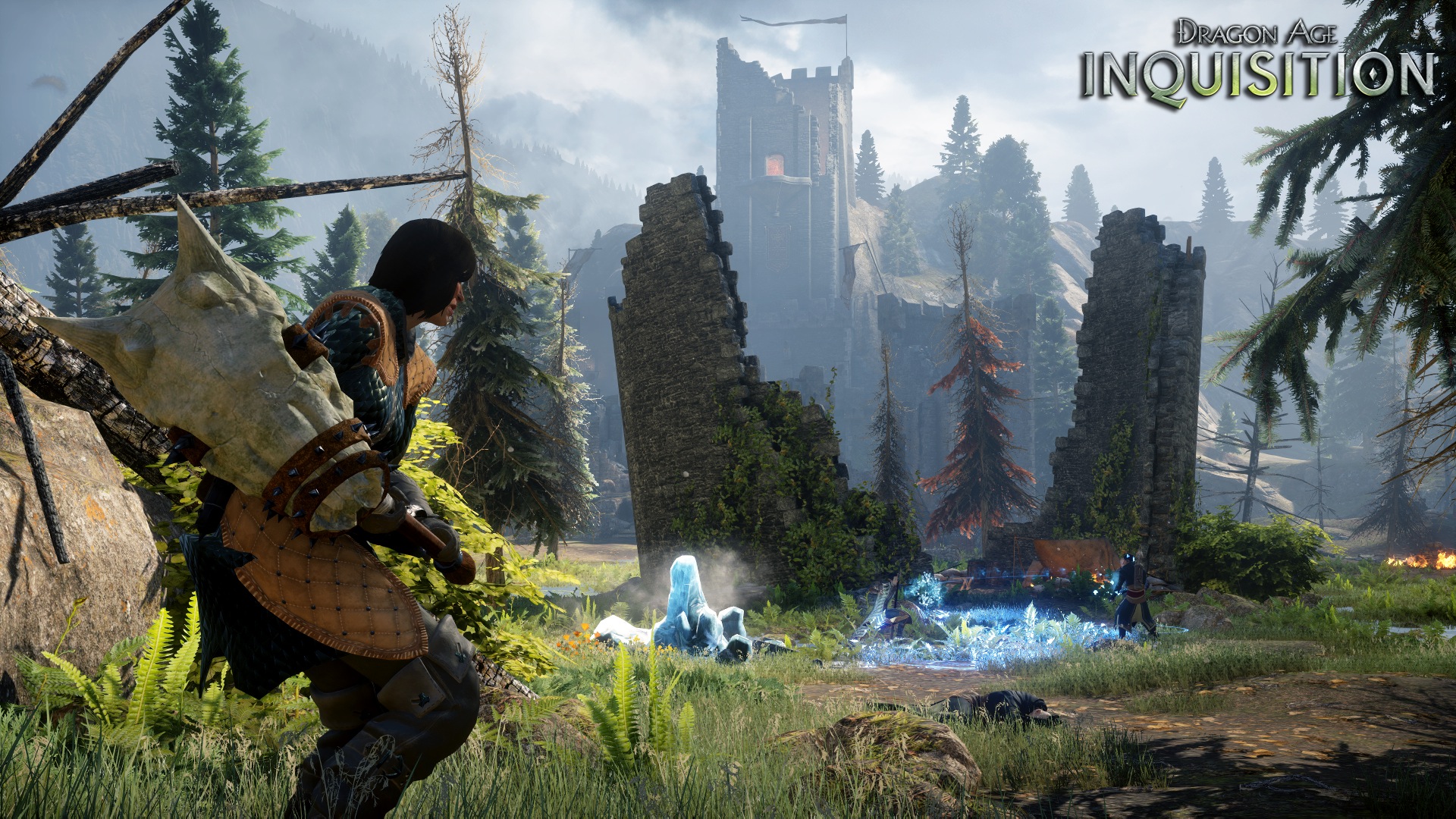
Dragon Age: Inquisition manages to strike a chord that most games fail to. A lot of first-person shooters will lean on hallways and rooms that look more like shooting galleries and strategy games tend to rely heavily on the risk and reward in a single-turn. In EA’s latest iteration of the fantasy franchise, I’ve found you can’t really lock the genre down in a single category.
That’s mostly thanks to multiple varied control schemes, encouraging not just turn-based action and special abilities but full tactical combat from a top-down or variable viewpoint perspective. Past iterations of the franchise haven’t done this as well as Inquisition does, yet you’ll eventually fall comfortably into a rhythm that either sees you playing as your own character or as the entire party.
In two ways, Inquisition has largely captured my attention for hours at a time. The first is using the directional pad on the PlayStation 4 controller to switch between party members, pull off a few special attacks, and then cycle back while waiting for cooldowns to finish. Doing so creates a lot of dynamism to every encounter with a ghoul or beast or bandit. Flipping to Cassandra for a few heavy attacks on the front lines, only to switch to Solas next and freeze anything left standing feels incredible.
Further, doing so actually combines attack powers to give your damage and overall combat effectiveness a boost. Shattering frozen enemies will take chunks of health from them, while shocking or blasting them with fire will leave them staggered and ready for a killing blow. Switching to another character before doing so only creates a greater sense of rhythm to play, not unlike a basketball game with opportunities for an alley oop or a slam dunk.
Leaving combat so engaging and far flung across maps means Dragon Age: Inquisition inevitably leads players into more and more of its adventuring content. For example, you’ll be hunting bandits in the Hinterlands before stumbling upon astrological maps or an encampment that eventually leads you to a cave with a big boss. When you get to the next area, you’ll be surprised to find a lot more gameplay in dialog, yet that only spurs the player into rocketing into the next sequence.
Plenty of games try to accomplish that sense of rocketing propulsion into further gameplay yet few Western RPGs manage to actually hit the mark with the kind of dedicated presentation in Dragon Age: Inquisition. I don’t normally clear an entire area when playing through a role-playing game normally.
As entertaining as most RPG gameplay is when you can find yourself attracted to both the game’s artistic merit and the world it tries to cloak you in, I can’t stand hacking and slashing through thousands of enemies. Bioware goes above and beyond that rote, repetitive gameplay by achieving concrete examples of the way conversation is the original video game.
I love language and there are certainly examples of inherently complicated language out there. It’s why my HTML skills start and stop with making things bold and why I can’t program worth a damn, so I’m constantly left asking questions about why more games can’t present discourse where it’s both engaging and rewarding.
In Val Royeaux, players can meet some stuffy looking aristocrats and are even at one point turned away by the guards there. A little investigation eventually leads to a new party member and an awareness that everyone there has something coming to them. Bioware allows players room to have an attitude in this situation and in many others like it, something video game dialog just doesn’t approach often enough.
Drama in the likes of an Assassin’s Creed or a Call of Duty tries this within the confines of their admittedly focused mechanical reaches. You wouldn’t expect an Assassin to remove his hood whenever he walked by a market stall because the focus remains almost entirely on navigating a huge city and fighting the forces of evil. The same can be said of the typically stoic soldiers that, throughout the course of a Call of Duty campaign, only grow quieter and more boldly heroic.
I want more games to get me involved into multiple, manageable quest lines the way Dragon Age: Inquisition does, yet I fear what that looks like in other genres. I’m falling further and further for my own main character, the relationships she’s building with the likes of Iron Bull, a massive horned warrior I just recruited, and the progressively more entertaining skill trees.
Can any other brand outside of Bioware’s Mass Effect get players to think about what they’re saying as much as what they’re killing in-game?











